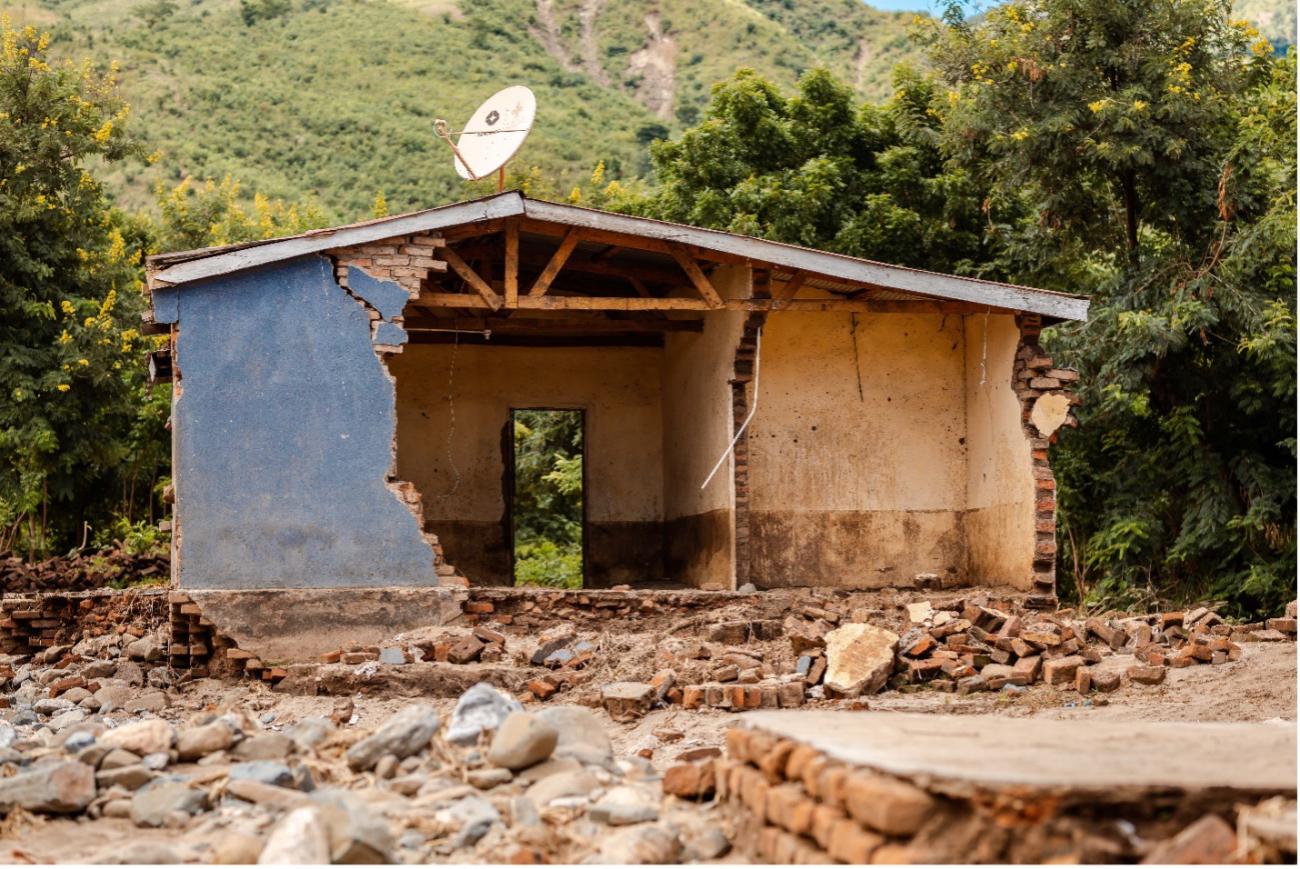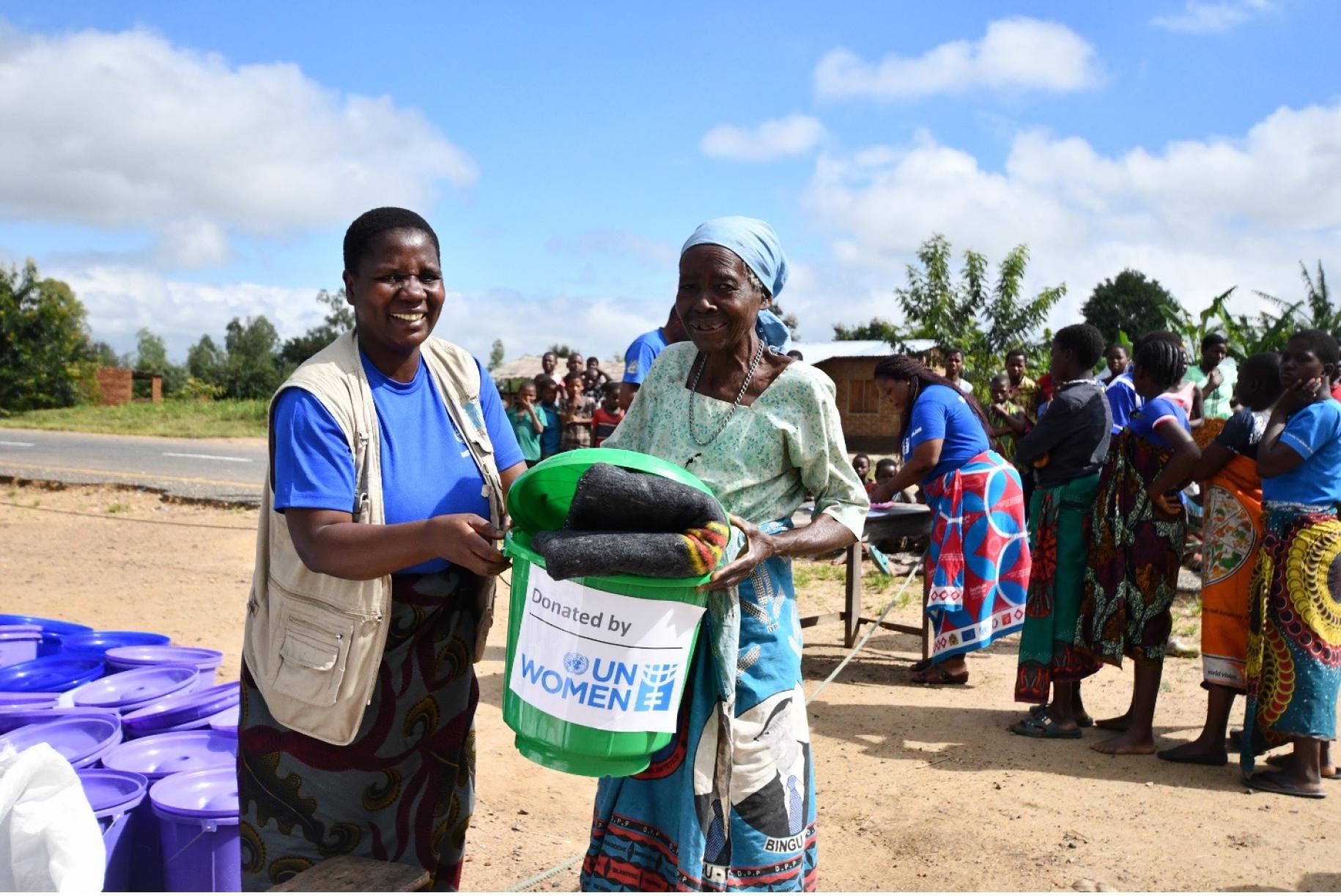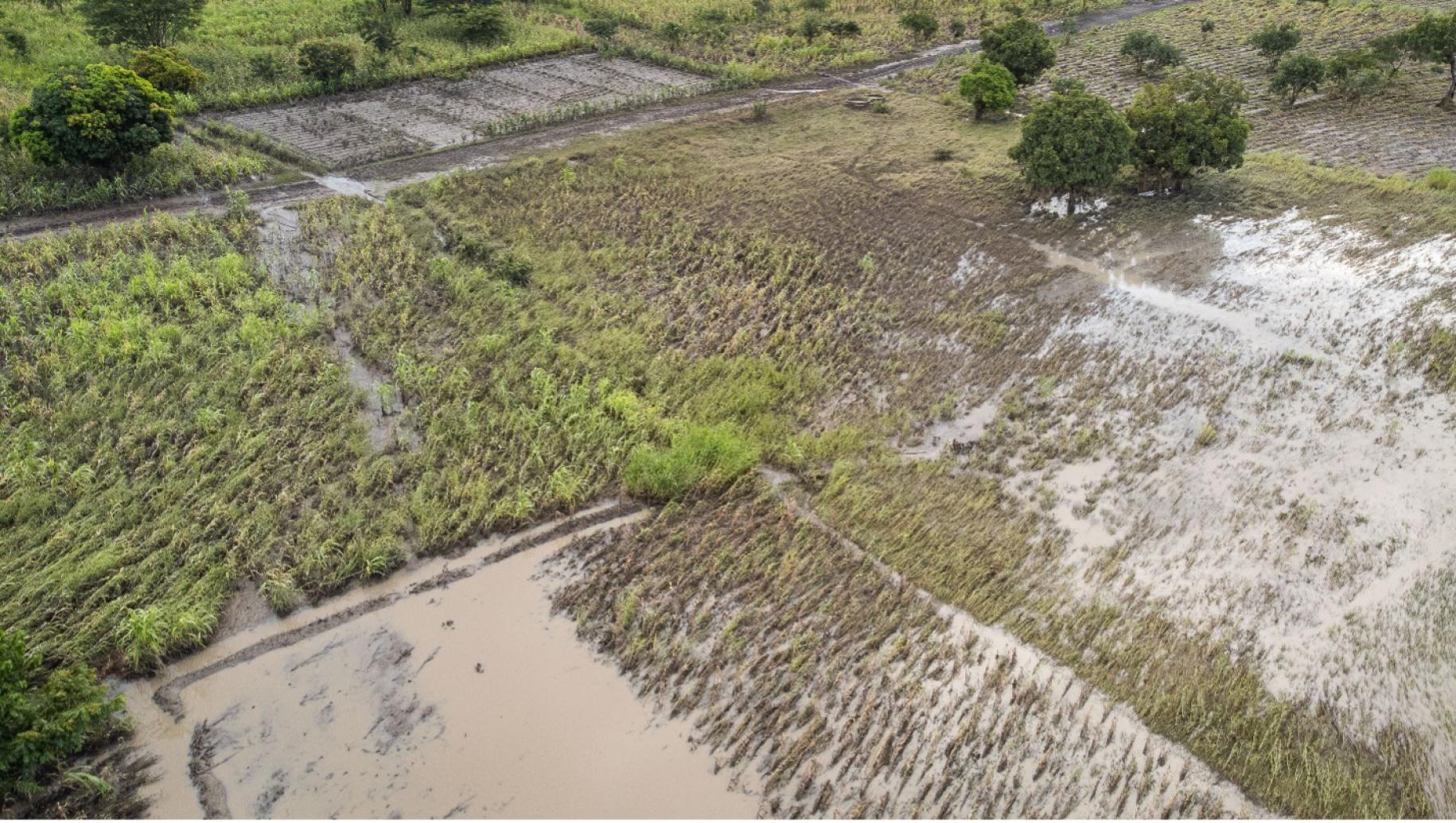Rebuilding lives in Malawi after Cyclone Freddy

"We have lost everything. Our house was destroyed, and we have no food or water. We are desperate for help." These words from Mary Phiri, a resident of Phalombe District have stayed with me months after Tropical Cyclone hit Malawi in February 2023.
Few parts of the country were spared from its fury. Thousands of Malawians in the southern districts, like Mary, were forced to flee their homes and witness all their possessions being washed away by the ravaging flood waters of the cyclone.
Amidst the widespread devastation, the agricultural sector suffered the most significant blow, with crops and livestock decimated by the heavy rains. With an estimated 50,000 hectares of farmland destroyed the disaster has posed a severe, and lasting threat to food security across the region.
Further, damage to roads and bridges have hindered access to markets and disrupted local businesses and livelihoods.
The impact on the health sector has been equally devastating. Malawi was already grappling with a cholera outbreak, and the cyclone exacerbated the situation. Access to clean water and sanitation facilities became even more dire.
Responding to this level of devastation required strong leadership and the full spectrum of UN resources and expertise. As the UN Resident Coordinator in Malawi, and with the support of my office, it was my role to rally the entire UN country team into action and help communities and institutions get back on their feet.
Here’s what we did:
Meeting the immediate needs
Since the onset of the tragedy, our efforts to support the Government-led response and provide immediate life-saving assistance to affected communities have been collective and coordinated; involving more than 60 UN agencies and non-governmental organizations.
Soon after the cyclone hit, the UN Central Emergency Response Fund (CERF) released US$5.5 million to support the humanitarian response. These funds have been instrumental in enabling our UN team to provide emergency shelter, food, and medical assistance to the people who needed it most. To reach the most isolated communities affected by the cyclone, we relied on helicopters as a vital lifeline.
Yet to keep the larger aim of long-term recovery alive, we also had to scale up and invest in sustainable development alongside ongoing humanitarian assistance.

Supporting education amid crisis
Although hundreds of schools were destroyed by the cyclone, it was essential that children could keep learning. This is why we worked in collaboration with local partners to ensure that nearly 1.3 million affected children receive the support they need to continue their education by providing additional temporary learning spaces and school supplies and supporting infection prevention and child protection services across 250 schools in nine districts heavily impacted by the cyclone.
Additionally, our Home-Grown School Feeding interventions, supported by the European Union, ensured that over 38,000 children in Chikwawa, Nsanje, Phalombe, and Zomba Districts have sustained access to nutritious meals. Access to learning and nutritious school meals are vital to the well-being and resilience of affected communities.
Protecting the most vulnerable
In the aftermath of the cyclone, we joined forces with the Malawi Government and partners to deliver a wide range of essential protection services to safeguard the rights of the most vulnerable; including by providing Psychological First Aid (PFA) and setting up community-based childcare centers.
Through impactful awareness programmes on the prevention of sexual exploitation and abuse, child education rights, gender-based violence, and early child marriage, we reached over 900,000 people, including 330,000 children. These interventions had a direct and transformative impact on thousands of lives, providing immediate relief, a sense of security, and the crucial support needed to rebuild and move forward.
Recognizing the significant toll the cyclone had taken on mental health, we also coordinated the provision of vital psychosocial support to survivors. This aspect of our response was instrumental in helping individuals cope with the emotional and psychological challenges brought on by the devastating cyclone.

Boosting preparedness
Understanding the extent of the damage caused by the cyclone was an essential first step in planning Malawi's long-term recovery. In April, the Malawian government, in conjunction with the United Nations and humanitarian partners, conducted a comprehensive Post Disaster Needs Assessment (PDNA). This joint analysis provided a detailed overview of the impact of the cyclone, enabling us to identify critical areas that required targeted interventions for longer-term recovery and resilience.
The need to prioritize and invest in disaster risk reduction (DRR) measures and early warning systems emerged as one of the key findings from the assessment. Since then, we have been working with the Government to ensure allocation of more resources to strengthen the country's capacity to anticipate, mitigate, and respond to potential disasters in the future, including by setting up timely alert systems to communities.
Yet fostering this culture of preparedness must come from the grassroots level. This is why we’ve been working with parters to deliver community-based disaster preparedness and response training programmes. These initiatives are helping to empower local communities with the necessary skills and knowledge to effectively cope with future emergencies and ensure they can be active agents in their own recovery efforts.
At the national level, the government, with UN support, is implementing longer-term resilience building and infrastructure policies. These policies encompass a broad range of areas, from sustainable land and water management practices to climate adaptation strategies. Investments are being made to bolster essential infrastructure, such as resilient housing, improved drainage systems, and reinforced community shelters, which can withstand adverse weather events and protect vulnerable populations.
The path to recovery and rehabilitation will undoubtedly be a long one, but the courage and collective spirit of the Malawian people is unwavering.
Together we can rebuild shattered communities, overcome this disaster, and forge a path towards a more resilient future.
This blog was written by UN Resident Coordinator in Malawi Rebecca Adda-Dontoh. To learn more about the work of the UN in Malawi visit Malawi.un.org













